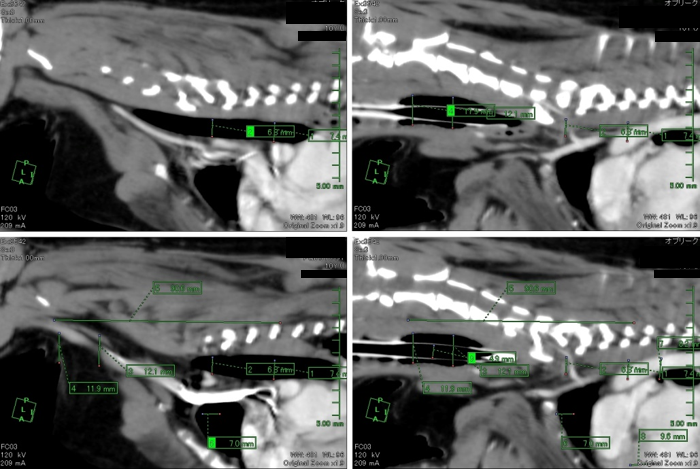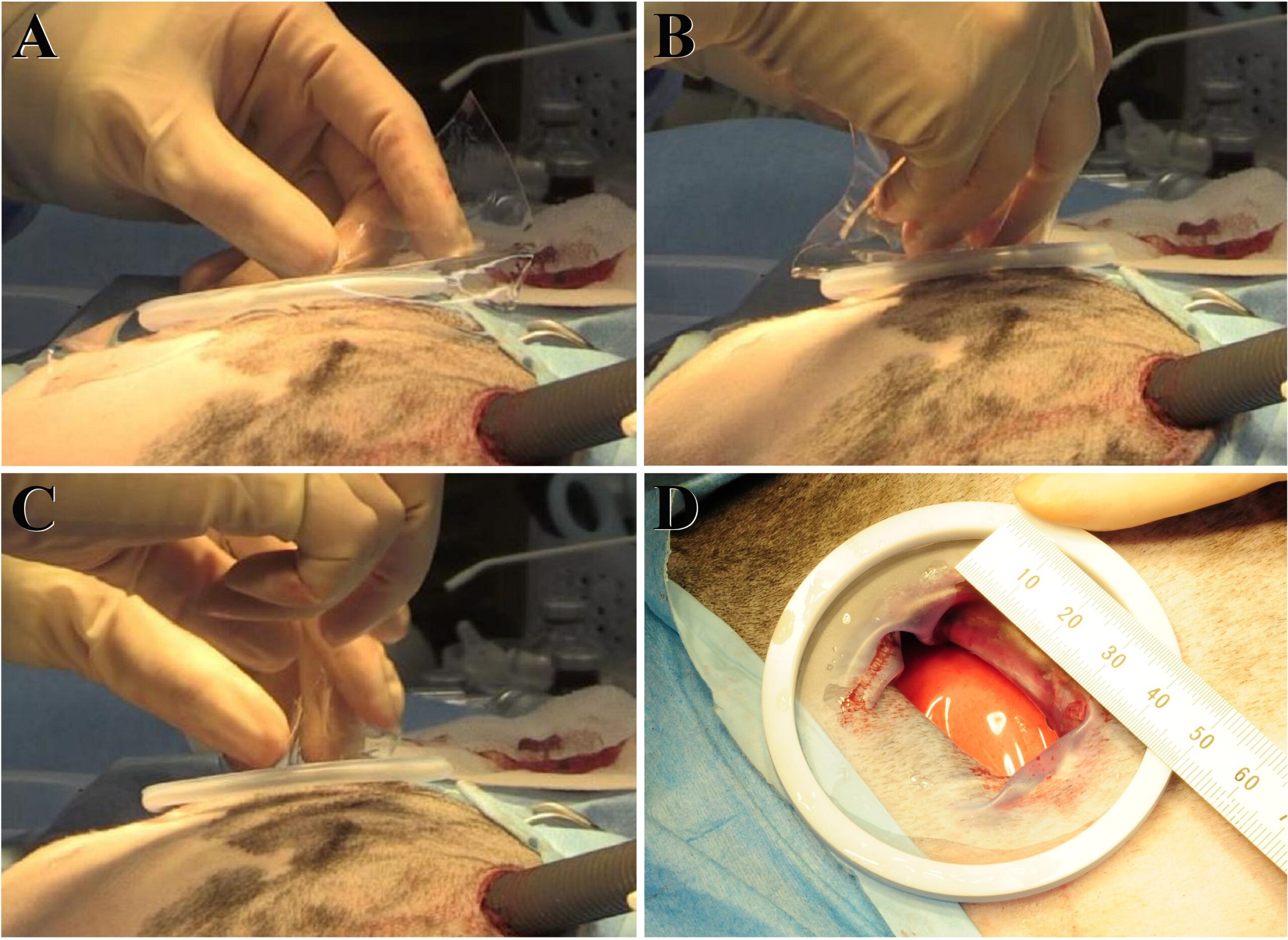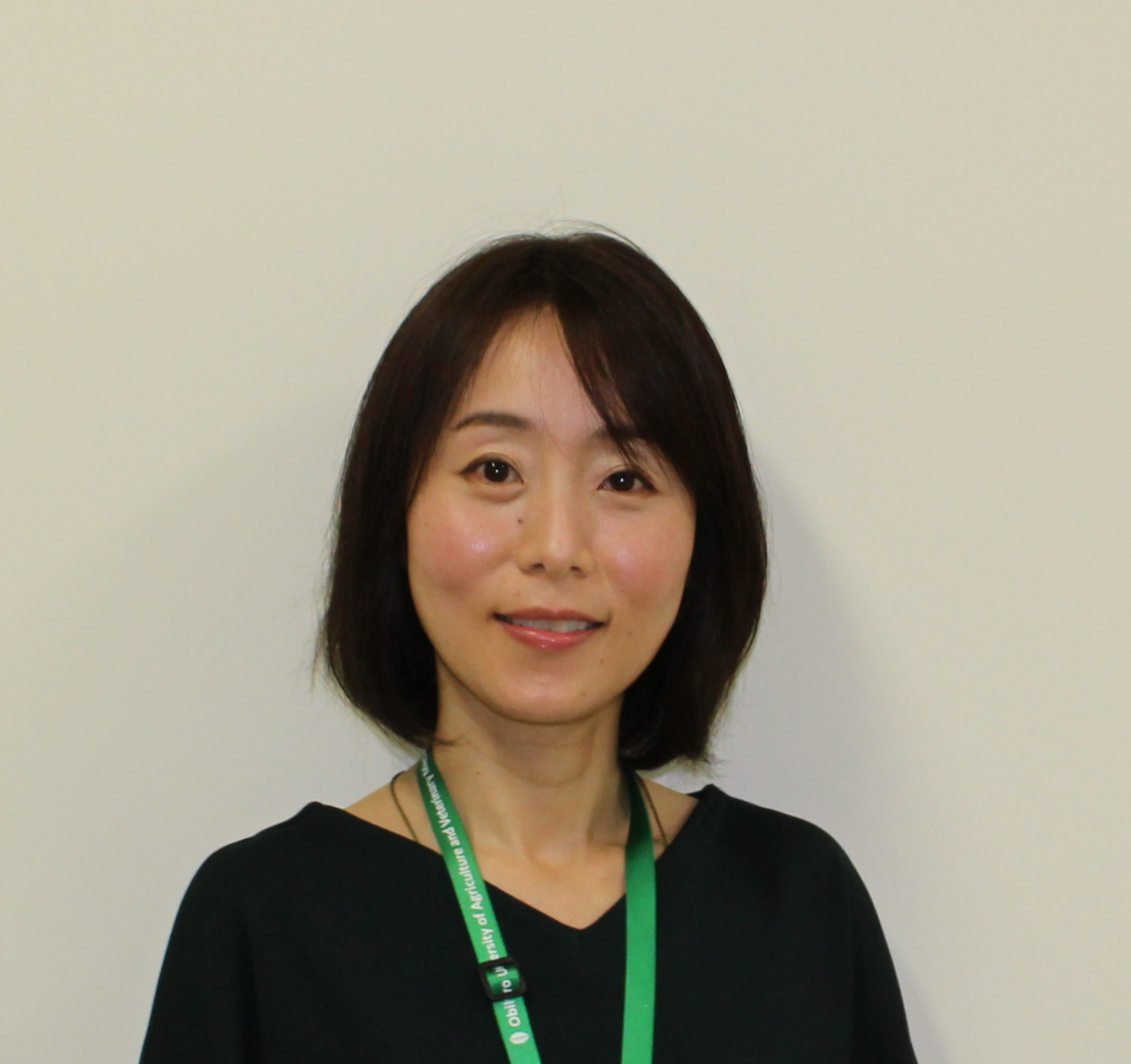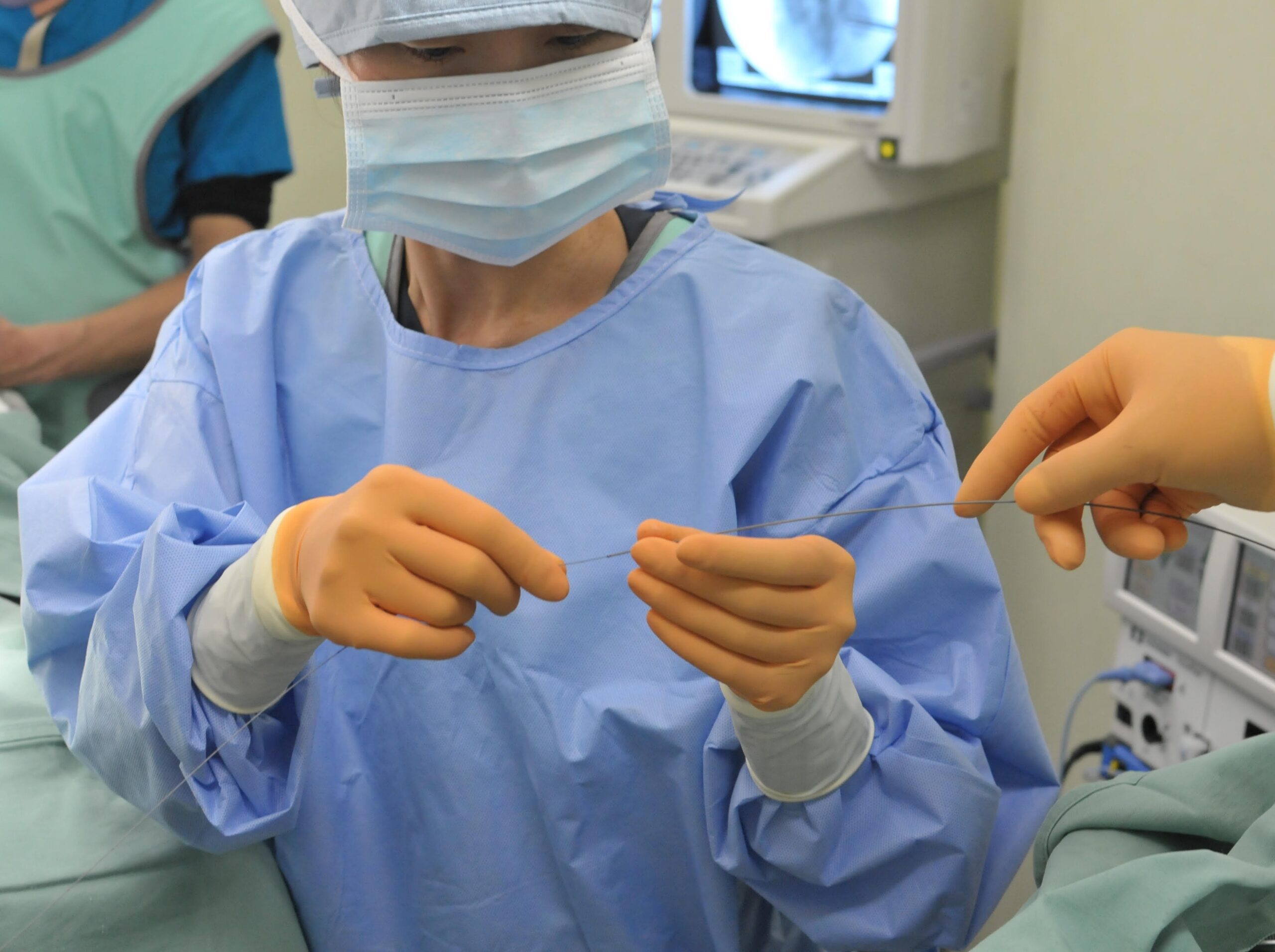UEMURA Akiko Professor
ThemeDevelopment of minimally invasive surgery (interventional radiology) and treatment devices
Elucidation of the pathogenesis of congenital heart malformations and congenital vascular malformations
Development of a post-operative anti-adhesion agent using hyaluronic acid
| Field | Small Animal Surgery, Cardiology, Operative Studies, Biomedical Materials |
| Keyword | Heart disease, Congenital heart defect, Congenital vascular malformation, Tracheal collapse, Interventional radiology, Minimally invasive surgery, Post-operative adhesion, Biomaterials, Hyaluronic acid, Regenerative medicine |
Introduction
My main areas of research are soft tissue surgery and cardiology in dogs and cats.
The first one is the development of minimally invasive surgery and devices in small cases, such as small dogs and cats. Interventional treatment in cases of light weight and low circulating blood volume is performed under open chest without open heart. I've been exploring the adaptation of the novel device to a hybrid technique where the device is inserted directly into the heart. This method is not affected by vessel diameter. This method does not depend on the diameter of the blood vessels, making it possible for small dogs and cats to use the large device and to use a heart-lung machine. It is not as invasive as the open heart surgery used, which can also reduce the surgical risk.
As one of the minimally invasive treatment options, a new tracheal stent for tracheal collapse in dogs has also been indicated in 2017. I'm working on it. A new stent with a different knitting method for Nitinol is already being extended to various diseases in human medicine device with superior tissue-following capability compared to conventional tracheal stents, which is expected to reduce post-operative complications. I am the second person in Japan to earn a new stent trainer certificate. I also provide hands-on guidance for the implantation of new tracheal stents for tracheal collapse in veterinary hospitals across the country.
I also found dogs and cats that were deemed unsuitable for sale and out of the general sales routes, especially in cases with congenital malformations. We are also involved in many treatments. In recent years, we have been investigating the pathogenesis of congenital heart malformations and vascular malformations in collaboration with several universities.
In addition, the development of post-operative adhesive-prevention agents using hyaluronic acid is another major focus of my research.Post-operative adhesions are a major problem, especially in human medicine, because of the high rate of post-operative adhesions. In order to address this problem, we have been working together with other universities and companies to develop anti-adhesion agents for post-operative period. We have reported on the effectiveness of insolubilized hyaluronic acid as an anti-adhesion agent to prevent postoperative adhesion in an open-chest model. Since we were able to clarify the effect of the degradation process of insoluble hyaluronic acid over time and the effect of swelling rate on the degradation rate, we are conducting research with a view to developing new applications for hyaluronic acid preparations.




List of current research topics
Modifications in the pathogenesis and treatment of patent ductus arteriosus (PDA) in very low weight patients
Development of minimally invasive surgery (interventional treatment) and treatment devices
Elucidation of the pathogenesis of congenital heart malformations and congenital vascular malformations in dogs and cats
New tracheal stent therapy for tracheal collapse
Hyaluronic acid drugs are indicated for the treatment of post-surgical adhesions and contractures
Development of novel surgical drapes
Electrocardiogram and heart rate variability analysis in cats and dogs
| Academic degree | Doctor of Philosophy in Agricultural Science |
| License | Veterinarian, Diplomate JCVS (Japanese college of veterinary surgeons) |
| Self introduction |
I was born in Taito-ku, Tokyo and raised in Adachi-ku, Tokyo. I love sweets and fruits, both Japanese and Western. My one weakness is the cold, so I am anxiously awaiting winter in Tokachi. |
| Room address | Companion Animal Research Building |
| Mail address | auemura  obihiro.ac.jp
obihiro.ac.jp |
Belongs
Research Department/Department of Veterinary Medicine/Division of Clinical Veterinary Medicine/Section of Small Animal Clinical SciencesVeterinary Medical Center/Small Animal Clinic| Related industries | Medicine, Veterinary medicine, Pharmaceutics, Agricultural science, Biomaterials |
| Affiliated academic society | Japanese Society of Veterinary Anesthesia and Surgery, Animal Clinical Research Foundation, Japan Endovascular Treatment Conference (JET), Asian Society of Veterinary Internal Medicine (AiSVIM), Japan Society for Veterinary Endoscopic Surgery, Japanese Society of Veterinary Imagings |






